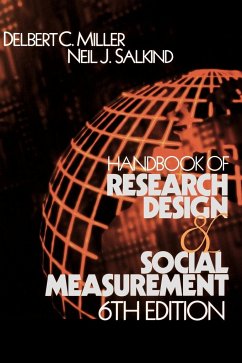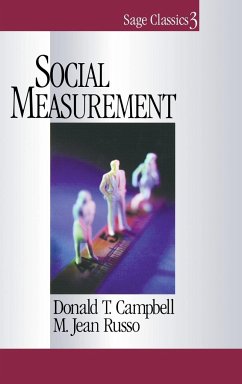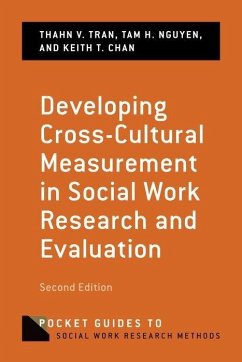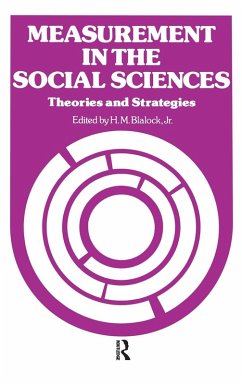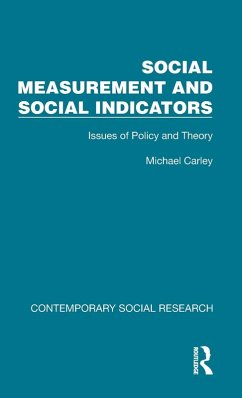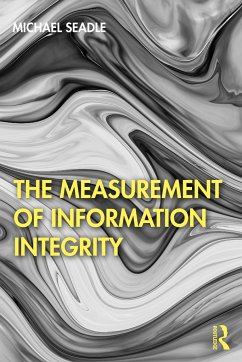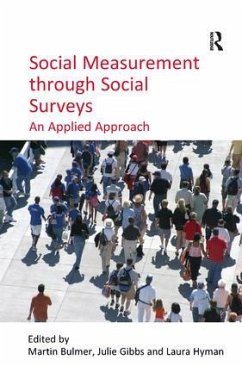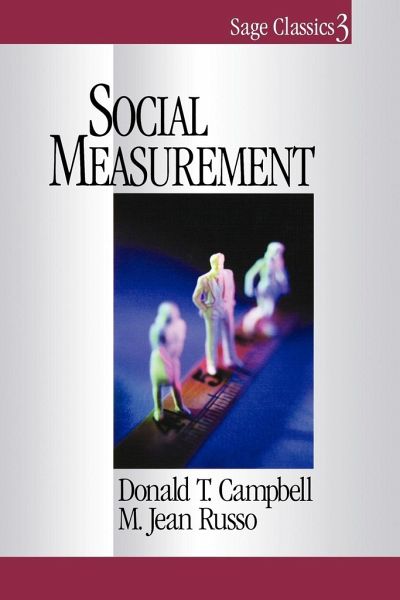
Social Measurement

PAYBACK Punkte
88 °P sammeln!
This book provides researchers, evaluators, and graduate students with a user-friendly presentation of CampbellÆs essential work (including his latest thoughts on some of his classic works) in social measurement. The book includes CampbellÆs arguments as to why qualitative approaches belong with quantitative ones as the assumptive background to relevant quantitative measures, his debate with deconstructionists and social constructionists on measurement validity, and an expansion and further explanation of his multitrait-multimethod matrix. By including overviews for each part and article as ...
This book provides researchers, evaluators, and graduate students with a user-friendly presentation of CampbellÆs essential work (including his latest thoughts on some of his classic works) in social measurement. The book includes CampbellÆs arguments as to why qualitative approaches belong with quantitative ones as the assumptive background to relevant quantitative measures, his debate with deconstructionists and social constructionists on measurement validity, and an expansion and further explanation of his multitrait-multimethod matrix. By including overviews for each part and article as well as provide social scientists with useful insights into CampbellÆs papers in a format accessible to advanced undergraduate and graduate students.





